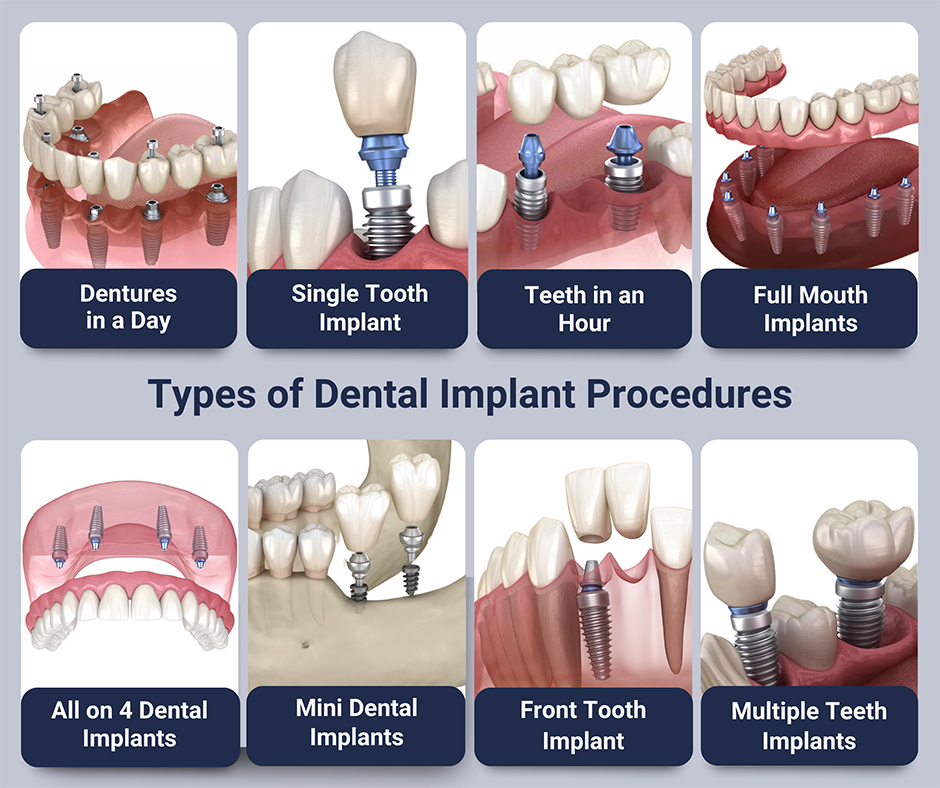
Dental implants go beyond merely filling the gaps left by missing teeth. They are integral to maintaining oral health and ensuring overall well-being:
1.Preserving Jawbone Health: When a tooth is lost, the underlying jawbone begins to deteriorate due to lack of stimulation. Dental implants mimic natural tooth roots, stimulating the bone and preventing resorption.
2.Restoring Functionality: Implants allow individuals to chew and speak with ease, providing a solution as stable as natural teeth.
3.Enhancing Confidence: A complete, natural-looking smile improves self-esteem and fosters social confidence.
4.Long-Term Durability: Unlike temporary solutions like dentures, implants can last decades with proper care.

Individuals may require dental implants for several reasons, including:
Missing Teeth: A single missing tooth or multiple missing teeth can affect chewing, speaking, and overall appearance.
Unstable Dentures: Traditional dentures may slip or cause discomfort, making implants a more secure alternative.
Bone Loss Prevention: For individuals at risk of bone loss due to tooth loss, implants help preserve jawbone structure.
Aging Population: As people age, dental issues such as tooth loss become more common, making implants a critical solution for maintaining quality of life.
Dental implant solutions are tailored to individual needs, and various types are available:
1.Endosteal Implants: The most common type, these implants are placed directly into the jawbone and topped with crowns or bridges.
2.Subperiosteal Implants: Positioned under the gum but above the jawbone, ideal for patients with insufficient bone density.
3.Zygomatic Implants: For patients with severe bone loss, these implants anchor to the cheekbone instead of the jawbone.
4.Mini Dental Implants: Smaller in size, they are suitable for less complex cases or stabilizing dentures.
